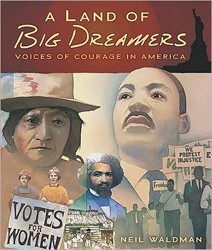At eleven, Gus Moskowitz has more on his mind than he can handle. It’s been two years since his singer/actor/waiter father traded shifts with a friend and died in the World Trade center bombing. Though his parents were divorced, his dad stayed close and Gus thinks of him and misses him all the time. Max, his best friend, moved away. The new class bully, Ivan the Terrible, won’t leave him alone. And now Liza, his talented and confident older sister, keeps nagging him to try out for a role in the school play. Never mind that he gets too nervous to even do an oral report in class. Gus yearns to reinvent himself, to be good at something…anything. It’s no wonder his mom often finds him hiding in bed, using his childhood blanket to shut out what feels like an overwhelming world.
Then, gradually, things start to change. Gus has avoided music since his dad, who never made it to Broadway, died. But his mother once studied to be an opera singer and his sister is the lead in every school musical, so it’s only logical that music should become the catalyst for Gus’ reengagement with life. Without asking his opinion, his worried mother arranges for him to take free oboe lessons from Mr. M., her employer’s retired musician father, a Holocaust survivor. As the weeks pass, Mr. M. welcomes Gus’s company, discovering in him a real gift for music and applauding his talent when he begins to compose melodies of his own. Meanwhile, Gus, raised in a purely secular home, learns not just music but about Mr. M.’s Jewish roots, about the boyhood traumas he had to overcome and about the possibility of becoming a Bar Mitzvah.
Without melodrama or sentimentality, the story takes Gus out from hiding and back into the world. Opening himself to others, he finds his own special way to honor his father’s life and move forward with his own.





